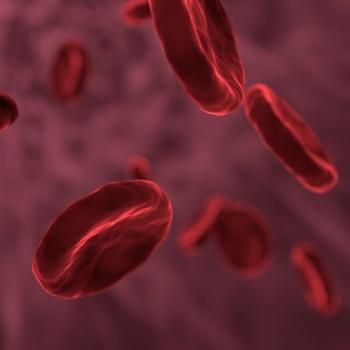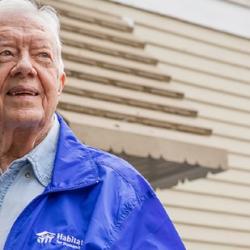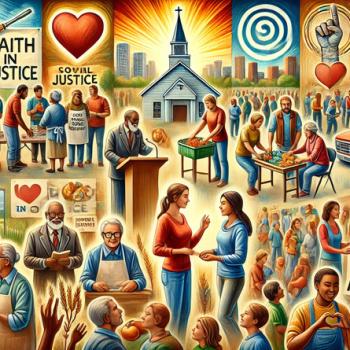Now Featured at the Patheos Book Club
Saints As They Really Are
Voices of Holiness in Our Time
By Michael Plekon
A new book, Saints As They Really Are: Voices of Holiness in Our Time,is the third of three by Michael Plekon that address the issue of holiness in our time. Here, Plekon answers some questions about the book, including what makes it different from so many other books written about the saints.
On the first page of the book, you quote Dorothy Day, the political writer, activist, and cofounder of the Catholic Worker movement: "We have seldom been given the saints as they really were, as they affected the lives of their times--unless it is in their own writings. But instead of that strong meat we are too generally given the pap of hagiography. Too little has been stressed the idea that all are called."
You amplify on that statement by stating one of your purposes in writing this book: "I want to see what holiness looks like in contemporary lives by listening to voices of those seeking to live such a life in our time. But rather than pursue themes and values in the abstract, I have chosen instead to go to individuals, to listen to writers and what they have said about their efforts to find God."
Why do you think approaching a difficult subject through the words and written experiences of others is so effective and powerful?
All of the writers I chose for the book are articulate and interesting, with varied stories to tell of how they came to pursue a life infused with meaning. Personal stories are a powerful conduit into viewing how someone else has struggled and dealt with faith and doubt.
You also say in the book that your essential purpose in writing it was to express "the realization that faith is rooted in one's everyday life" and that it is in everyday living that holiness is manifested. An astute reader of your book has written that for you, it seems, "holiness is more of a process, one in which all believers share, rather than a state of being." The same reader characterizes your contribution and originality as your ability to weave biography and memoir of some twenty or so (mainly) Christian individuals with your theological and pastoral sensitivities and your critique of the church. Would you agree with that assessment?
Yes, absolutely. Holiness is definitely not a static state of being but, rather one with ups and downs. The people I profile represent great variety, with lives filled not only with peace but heartache and, in some cases, great hardship.
Your own progression through Catholicism, Protestantism, and Orthodoxy, along with your academic profession and ordained ministry, has given you a multifaceted appreciation of how people approach the very subject of holiness. That topic can seem daunting, to say the least.
I would say there are more similarities than differences between my personal experience and those represented by the authors whose accounts I chose to include. We all rub against the same demands in life, in varying intensities; that shared experience trumps theological divides.
How are your books on saints and holiness different from those of other writers who are addressing these topics?
I think one difference is that I have looked at people with great faith as well as those with very strong doubts with faith and the church. Dorothy Day, Thomas Merton, Alexander Schmemann, Barbara Brown Taylor, Sergius Bulgakov, and others had real arguments with the institutional church, with the culture of the clergy, and with the way that faith was engaging culture and society. Many of the individuals I discuss will be unfamiliar to some readers; they are not familiar names but, Oh, can they write! All exhibit a passion for truth, beauty, and justice. I'm not interested in the stereotypical, "churchy" piety that seems to be the model for some. The everyday saints in my books are down-to-earth; they become angry, curse, enjoy a good steak and bottle of wine, read novels, and are interested in the world around them. That quite a few were criticized and even harassed by the institutional church only confirms their authenticity for me. I think encountering and hearing from them is refreshing, although sometimes startling.
In the final chapter, you discuss some of the struggles that organized religion is facing, with dwindling congregations looming very large on that list. Yet, what strikes this reader is a pervasive tone of optimism in your work, one based on a belief, perhaps, in the essential goodness of humans--that we all have within us the components enabling us to strive toward "holiness," in myriad forms.
The church, that is, the body of Christ, the people of god, is not disappearing. Rather, our time, where we live and work, who we are--all make the older models no longer sustainable. Just as we can find contemporaries looking for God and writing about their efforts to be saints, so we can explore the ways in which communities of faith can, must, and are finding new ways of being church.
6/16/2012 4:00:00 AM




